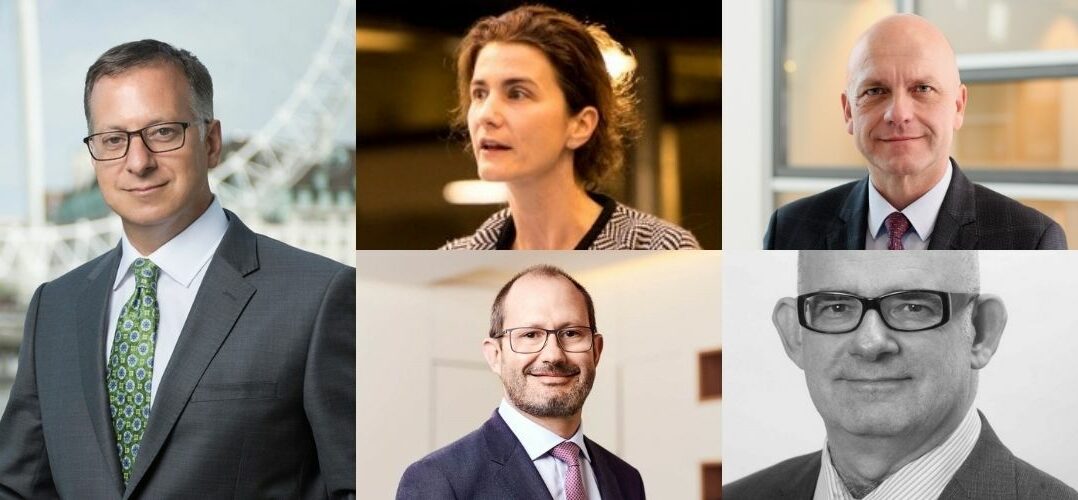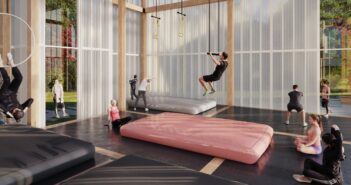The theme for the MIPIM Urban Forum, the one-day conference in Paris on Wednesday 16 September, and part of Paris Real Estate Week, is Embracing the Change.
As we prepare for the journey, embracing the change is also about ‘being the change’. MIPIMWorld Blog sat down with five leaders in their fields to talk about the changes they were “embracing”, for their organisations, the real estate industry and the wider world.
Let’s hear from Allianz Real Estate, Covivio, FORE Partnership, C40 and Oxford Economics, not least about how the real estate industry needs to “embrace the power of data” and how property can be used as a “catalyst for change in society”…
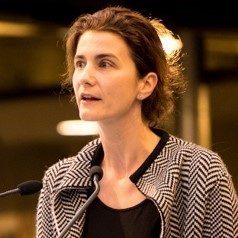
Hélène Chartier, Head of Zero Carbon Development, C40
Buildings generate nearly 40% of global annual global greenhouse gas (GHG) emissions: 30% in the operation of buildings and 10% in the construction of buildings. Therefore the real estate industry has a huge responsibility and a huge role to play. If we want to avoid climate breakdown, we need radical changes, starting with systematic transparency and accountability on GHG emissions.
“If we want to avoid climate breakdown, we need radical changes, starting with systematic transparency and accountability on GHG emissions” – Hélène Chartier, C40
The motto of the real estate industry, and the hierarchy in the industry’s approach to reducing carbon, should be:
- Build nothing–> evaluate the need for development & explore alternative approaches.
- Build less–> prioritise reuse & refurbishment.
- Build clever–> establish lifecycle assessment, use low carbon materials & circular economy solutions (adaptability, longevity & design for disassembly).
- Build efficiently–> reduce resource and energy use during construction and operations.
Hélène Chartier is on the MIPIM Urban Forum panel ‘Climate Emergency: time for radical change’ on 16 September.
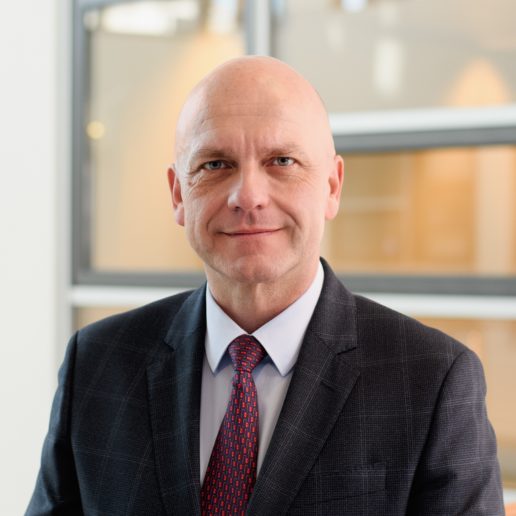
Alexander Gebauer, CEO West Europe, Allianz Real Estate
At Allianz Real Estate, we are driving an ambitious programme of innovation and digitalisation in order to create more value from our global real estate portfolio and for our tenants. Through our innovative ‘Building Signature Program’ we are setting the standards for what constitutes a smart office building. This will influence our asset management and investment strategy going forward as we believe that healthier, flexible and highly connected office buildings will offer the best value both for the users and the investors.
“Through our innovative ‘Building Signature Program’ we are setting the standards for what constitutes a smart office building” – Alexander Gebauer, Allianz Real Estate
There is a clear challenge in managing how the COVID-19 experience will change the office tenants’ view on workplaces in the future. We have all learned over the last months that there is a lot that can be accomplished in a work-from-home setup. While it is true that going to the office to send emails is probably not the best use of time and buildings, we are also experiencing how important an office is as a place to exchange, invent, create and maintain team spirit. In our Building Signature Program, we will focus on making the office of the future fit for that purpose, i.e. creating a unique user experience.
“We are experiencing how important an office is as a place to exchange, invent, create and maintain team spirit” – Gebauer
I believe our industry needs to better understand and embrace the power of data. With more and better data, intelligently analysed, we will be able to shape our assets and portfolios, reduce the risk of obsolescence and improve the risk-return profile of our buildings.
“Our industry needs to better understand and embrace the power of data” – Gebauer
Data is blurring the borders in terms of who will drive the value creation in our industry and this will give rise to new players able to solve the challenges facing our industry while at the same time maximizing value. With this shift, we will go from managing an asset to developing a product that meets the users‘ expectations in the best possible way.”
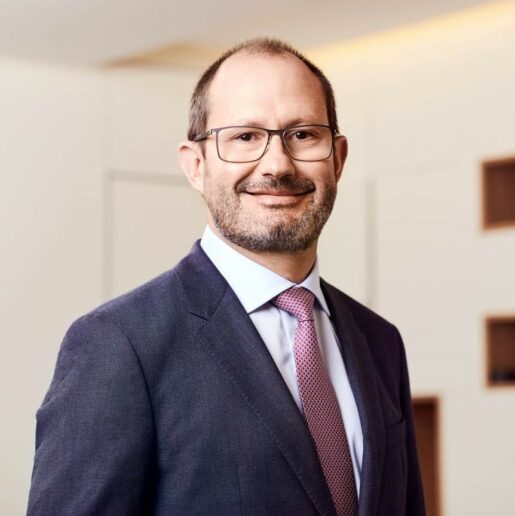
Olivier Estève, Deputy CEO, Covivio
The demand from our office tenants is for very flexible buildings that they can modify, possibly every year, as the cycles get shorter and shorter. They are looking to not only fine-tune their real estate portfolios, but also to repurpose their office space to create collaborative platforms.
As a real estate company in this changing world, the way to create value is through strong partnerships and by offering services along the entire value chain. It’s not only about delivering the building, but also advising on strategy and providing tailor-made workplace solutions. This is a real competitive advantage.
“There are still lot of questions about how people’s behaviour will change socially … Tenants are all asking the same question: what will make my people want to come back to the office?” – Olivier Estève, Covivio
Everything about sustainability and wellbeing is set to become more and more central, but there are still a lot of questions about how people’s behaviour will change socially. No one can say for sure that people will behave in a certain way. Tenants are all asking the same question: what will make my people want to come back to the office?
The workplace is central for corporate culture, and for boosting creativity and commitment. To do this, the office now needs to offer employees something different to what they have had working from home. This may be services, connectivity, a sense of belonging. At the same time, the workspace has to meet the company’s needs, whether for a corporate image or operational efficiency. This is what we are working on today, with our teams and our customers.
Olivier Estève is on the MIPIM Urban Forum panel ‘Addressing tomorrow’s challenges’ on 16 September.

Basil Demeroutis, Managing Partner, FORE Partnership
As a result of this crisis, deeply entrenched norms around how buildings get built and operated have been shattered. The industry seems more willing now to innovate, trying new ideas around M&E [monitoring & evaluation]systems, air filtration, hygiene. Tenants and their consultants are less of the mind that systems must be “four-pipe-fan-coil-or-nothing”. This is a real opportunity for landlords and developers like us to push innovation, be that natural ventilation, in floor air-displacement systems, or other strategies that focus not only on wellness but equally on reducing carbon and energy consumption. This bodes well for our commitment to reach net zero across our portfolio by 2025.”
“This is a real opportunity for landlords and developers like us to push innovation” – Basil Demeroutis, FORE Partnership
“There have been far too many words spilled about the “death of the office”. I say, “the office is dead; long live the office!” Transforming the workplace is way overdue and something we have been advocating since our inception. Why do we go to the office when with smartphones or tablets we effectively have an office in our pocket or backpack? Companies will now need to answer this urgently for their staff, their suppliers, their shareholders and stakeholders, clearly articulating what magic can only happen at the office. What is it that can’t be virtualised?
“Companies will now need to … clearly [articulate]what magic can only happen at the office. What is it that can’t be virtualised?” – Demeroutis
“The global pandemic has shown real estate owners the power they have to dramatically impact social outcomes. We have opened buildings to those in need, used space to help the sick and homeless, addressed urgent issues around health and wellbeing in our communities. It’s shown many in our industry how property can be used as a catalyst for change in society – and if this isn’t property’s purpose, I don’t know what is.
“[The global pandemic has] shown many in our industry how property can be used as a catalyst for change in society – and if this isn’t property’s purpose, I don’t know what is” – Demeroutis
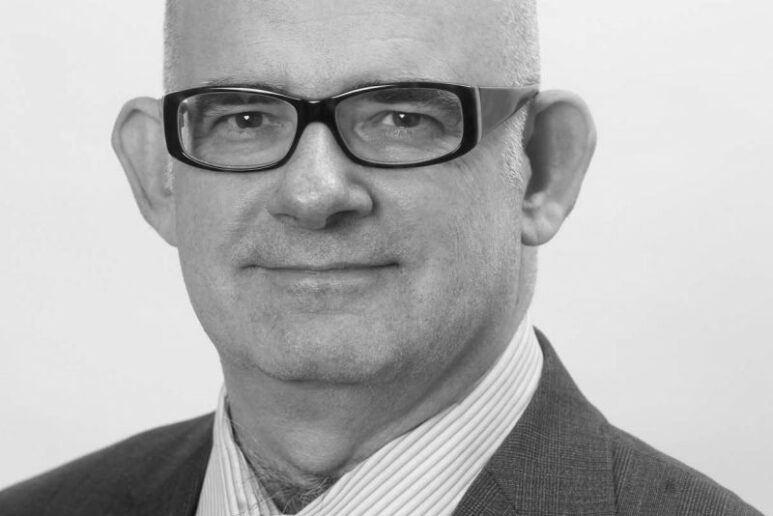
Richard Holt, head of global cities research, Oxford Economics
I don’t subscribe to the view that big cities will lose out to small cities, or cities to towns. And neither are we all going to move to the countryside. That is not conceivable.
It is much more of a case that those cities with large problems of social inequality and social exclusion – and, as a result, high levels of health vulnerabilities – could find themselves losing out over the long term to more socially inclusive cities.
“Those cities with large problems of social inequality and social exclusion could find themselves losing out … to more socially inclusive cities” – Richard Holt, Oxford Economics
Related to that, the better-performing cities will be those that are well organised, financially viable, know what they are doing, and are supported by strong, sensible national policies – with decisions based on evidence rather than ideology or politics. That is the way to guide your investment strategy in the next decade.
“Don’t panic! But also don’t relax, as the virus is still out there. We have to remain vigilant” – Holt
My advice to real estate stakeholders in today’s incredibly complex environment is: don’t panic! We believe that the growth is going to come back – in some countries fairly soon – and we will see extraordinarily high GDP figures. But also don’t relax, as the virus is still out there. We have to remain vigilant.
Richard Holt was speaking on the MIPIM Connect session ‘Expert Insights: European & global cities forecast for post-Covid recovery’.
